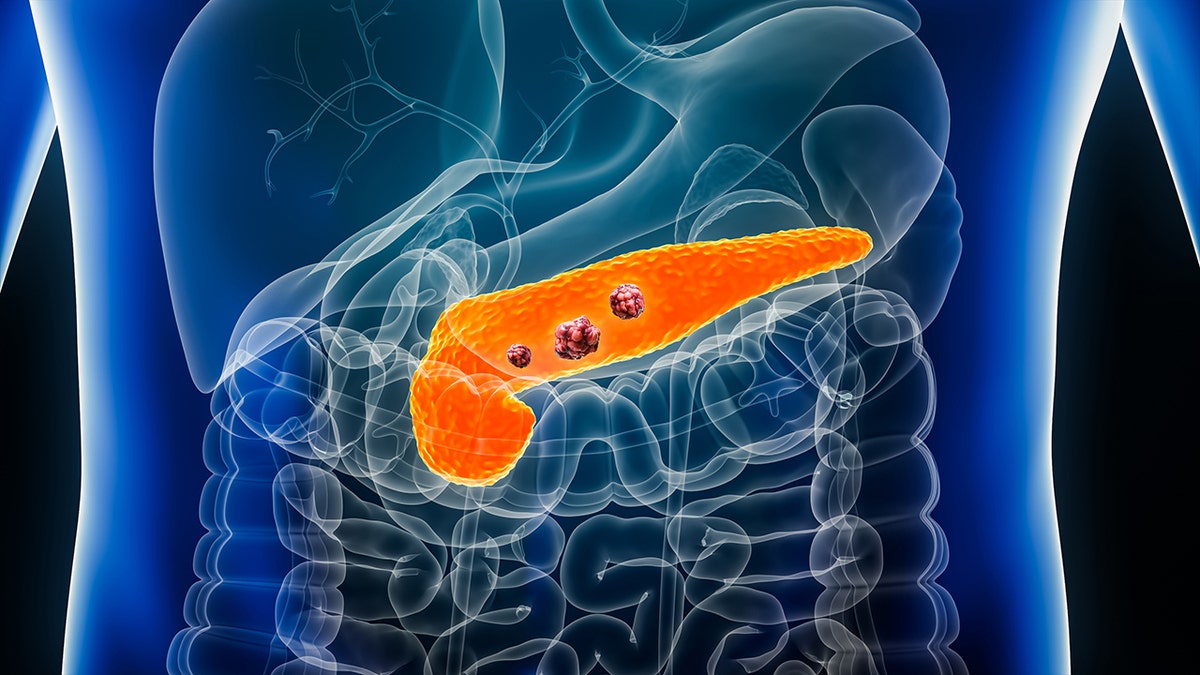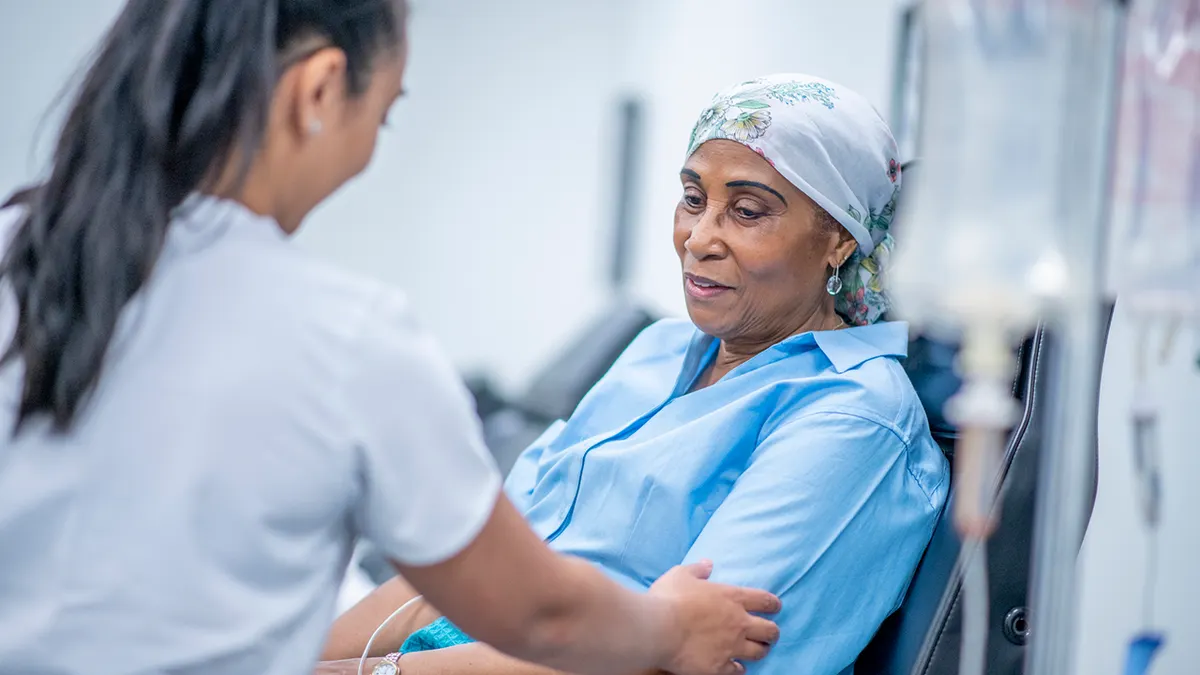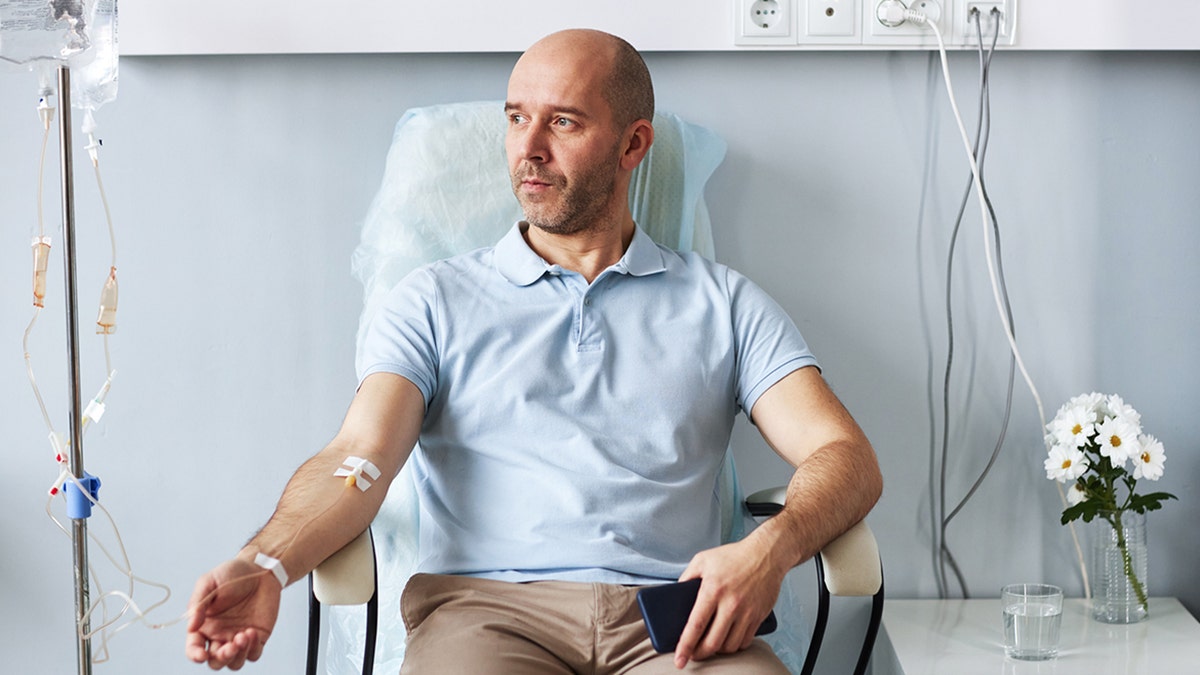Having children at younger age may help reduce the risk of breast cancer, study says
Fox News contributor Dr. Nicole Saphier joins 'Fox & Friends Weekend' to discuss the increase in breast cancer diagnoses in younger women and ways to reduce the risk.
High doses of vitamin C could be a new breakthrough in treating cancer.
The University of Iowa Health Care Carver College of Medicine has shared results from a randomized, phase 2 trial testing the impact of adding high-dose vitamin C to intravenous chemotherapy treatments for pancreatic cancer patients.
The researchers found that administering 75 grams of vitamin C three times a week doubled overall survival rates of patients with late-stage metastatic pancreatic cancer from eight months to 16 months.
WHAT TO KNOW ABOUT ACTOR DAVE COULIER'S BLOOD CANCER: ‘VERY AGGRESSIVE’
The study, published in the journal Redox Biology, also found that progression-free survival was extended from four to six months.

The researchers found that vitamin C in high doses generates hydrogen peroxide, which "kills the cancer cells." (iStock)
Lead researcher Joseph Cullen, MD, University of Iowa professor of surgery and radiation oncology, shared in an interview with Fox News Digital that the "groundbreaking" findings are the result of 20 years of research on vitamin C.
After testing vitamin C in the lab, Iowa researchers found that using vitamin C in much higher doses "worked great" in killing cancer cells.
"Vitamin C, which is inexpensive and well-tolerated, may improve the efficacy of chemotherapy with a good quality of life."
"We found that at these high doses, ascorbate [vitamin C] actually generates hydrogen peroxide," Cullen said. "And the hydrogen peroxide is what kills the cancer cells."
The patients who received vitamin C in the phase 2, FDA-approved trial also seemed to "better tolerate the chemotherapy they were given," according to the researcher.
NEW CERVICAL CANCER TREATMENT APPROACH COULD REDUCE RISK OF DEATH BY 40%, TRIAL RESULTS SHOW
"Therefore, they got more chemotherapy for longer periods of time and larger doses of chemotherapy, which also would kill the tumor cells," he added.
Intravenous vitamin C could also help combat other kinds of cancer, according to Cullen, who mentioned that his colleagues are looking into treating lung and brain cancer.

The patients in the study tolerated chemo better with high-dose IV vitamin C, the researcher said. (iStock)
Dr. Georgios Georgakis, a surgical oncologist at Stony Brook Medicine in New York, noted that these findings could "potentially be a breakthrough" for cancer patients.
"It seems to be working synergistically with chemotherapy," Georgakis, who was not involved in the study, said in a separate conversation with Fox News Digital.
AI DETECTS WOMAN'S BREAST CANCER AFTER ROUTINE SCREENING MISSED IT
Dr. Joshua Strauss, an attending hematologist and medical oncologist at Advanced Care Oncology and Hematology Associates of the Atlantic Medical Group in Morristown, New Jersey, also expressed his support for this method.
"Small clinical trials such as this one have recently provided exciting and consistent signals that vitamin C, which is inexpensive and well-tolerated, may improve the efficacy of chemotherapy with a good quality of life," the oncologist, who also was not involved in this new research, said in a statement sent to Fox News Digital.
The benefits of vitamin C
Vitamin C, or ascorbic acid, is an "essential dietary nutrient" found in various foods like citrus fruits, tomatoes, potatoes, broccoli, strawberries, cabbage and spinach, according to Strauss.
Georgakis noted that vitamin C can help with tissue growth and repair, collagen production, wound healing, bone and skin health, and immune support.
In lower doses, vitamin C acts as an antioxidant. The Food and Drug Administration (FDA) recommends getting 75mg to 90mg daily.

Vitamin C can help the body with tissue growth and repair, collagen production, wound healing, bone and skin health, immune support and more. (iStock)
Once the body has taken in enough vitamin C, any excess is excreted through the kidneys and won’t be absorbed, Cullen pointed out.
But once the dosage is bumped to much higher levels, such as 75 grams, it acts as a pro-oxidant.
"So, it actually makes these reactive oxygen species that kill cancer cells well," he said.
CLICK HERE TO SIGN UP FOR OUR HEALTH NEWSLETTER
It would take backing from a pharmaceutical company to support what would be a "multi-million-dollar" phase 3 trial to continue research, according to Cullen.
For now, he suggests that cancer patients interested in exploring IV vitamin C should talk to their oncologist and seek out professionals who can administer it.
Strauss applauded the researchers and the National Cancer Institute for their efforts, noting that he read the results with "cautious optimism."

"It seems to be working synergistically with chemotherapy," an oncologist commented on the method. (iStock)
"Pancreatic cancer can be extremely difficult to treat, and I am hopeful whenever I read positive results from a phase 2 study," he went on. "However, the study has several limitations, and the results should be carefully interpreted."
For more Health articles, visit www.foxnews.com/health
Strauss and the study authors acknowledged some of those limitations, including the small sample size of 34 patients and lack of diversity.
"Larger randomized phase 3 trials are needed to confirm the results before this is adopted into widespread clinical use," Strauss told Fox News Digital.
CLICK HERE TO GET THE FOX NEWS APP
Georgakis agreed that although the trial did have a "very good outcome," this is "not the golden bullet for treating cancer."
"However, this is exactly what we need – incremental, good outcomes in our fight against cancer," he said.










































